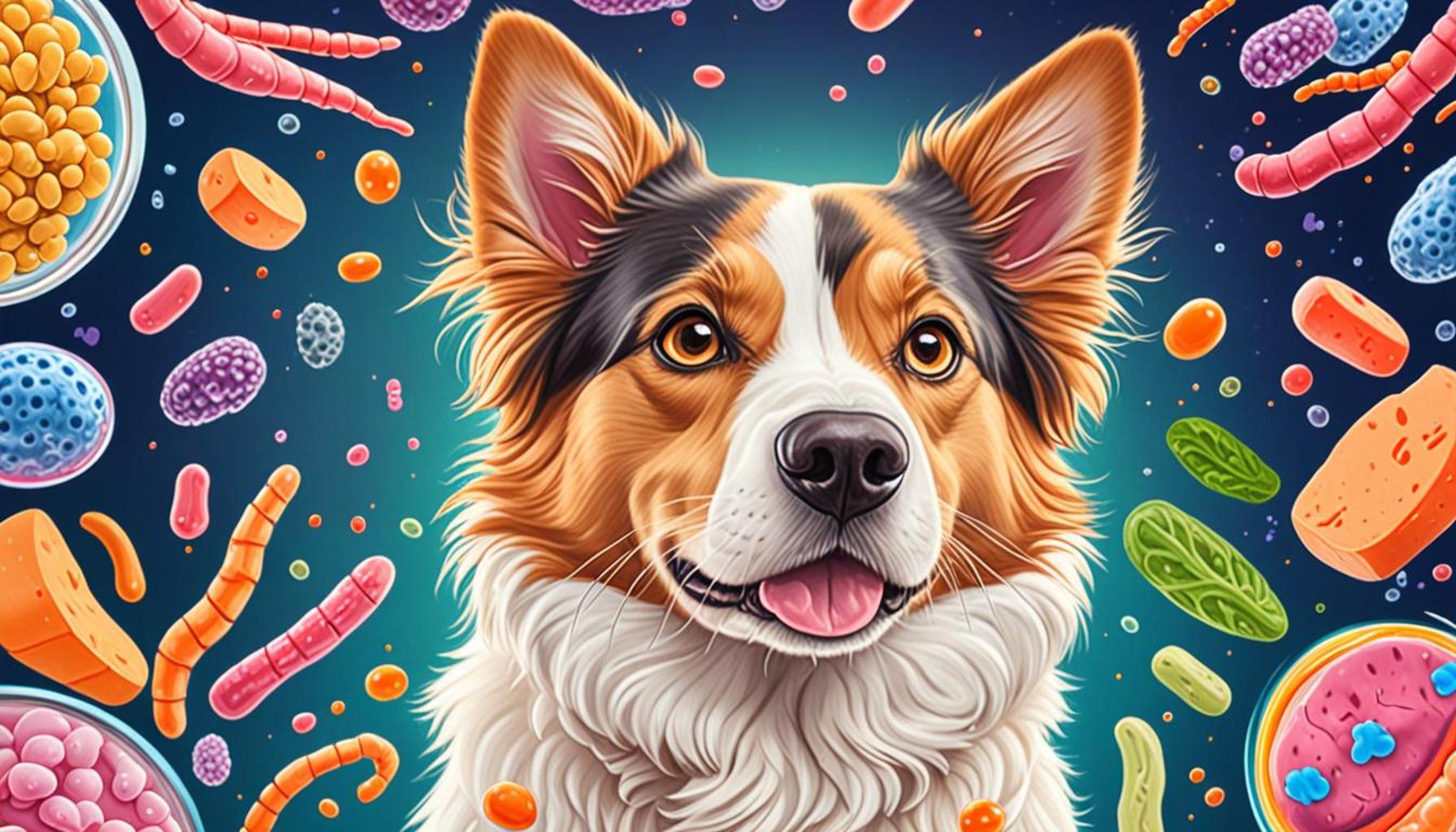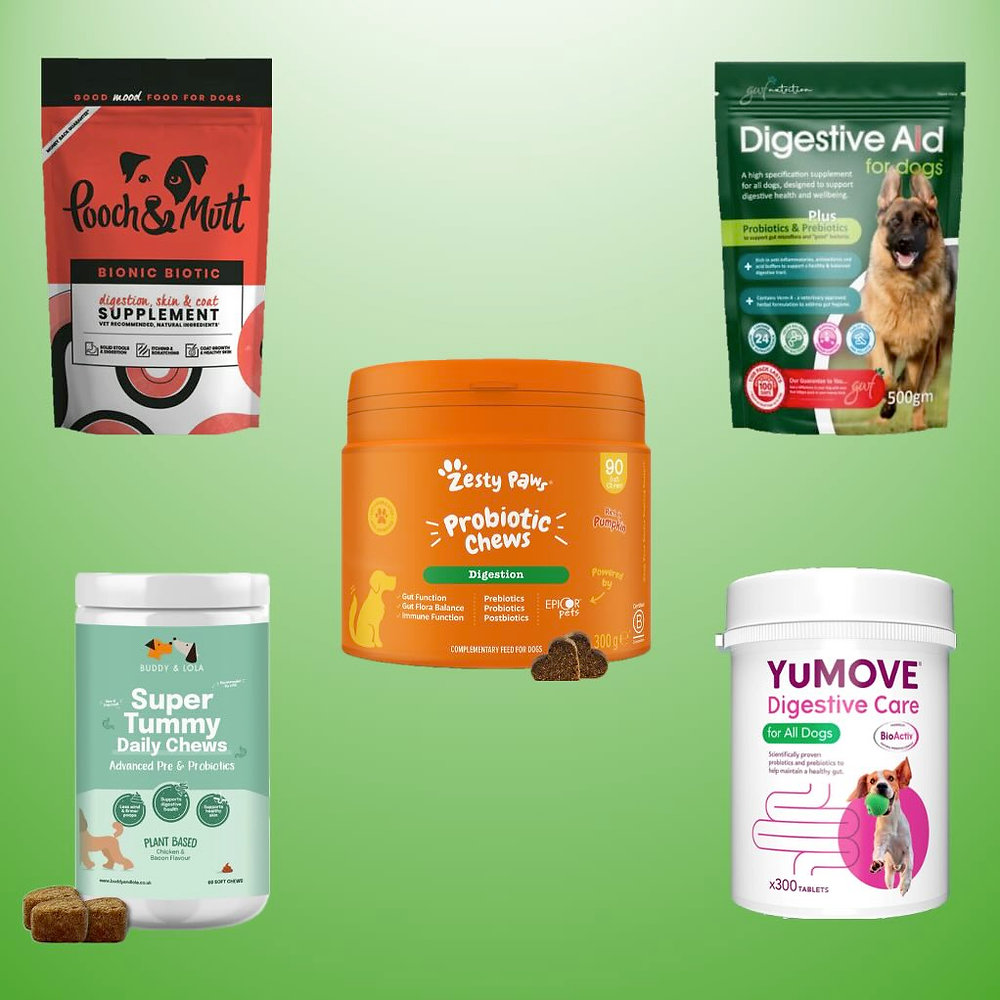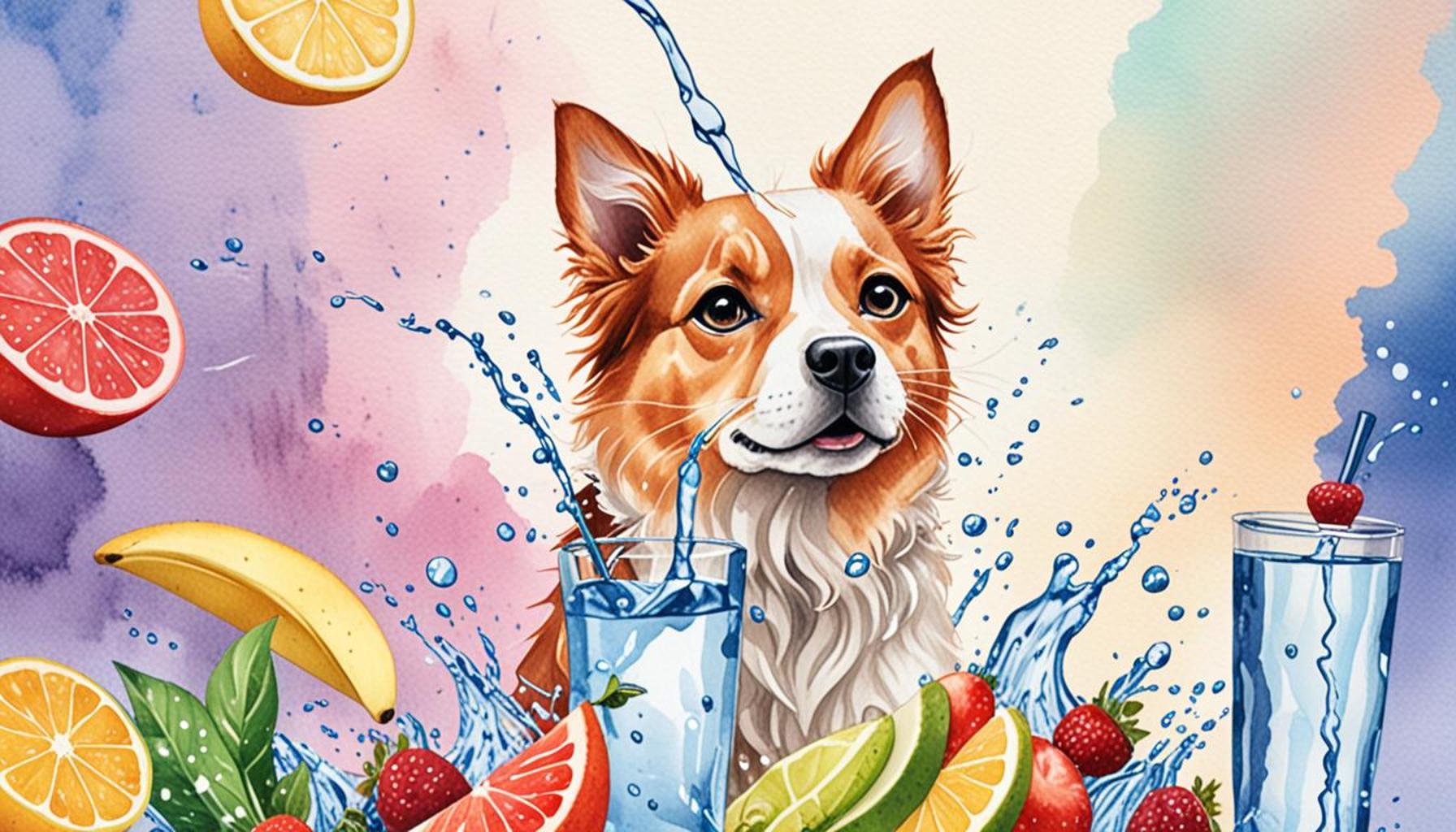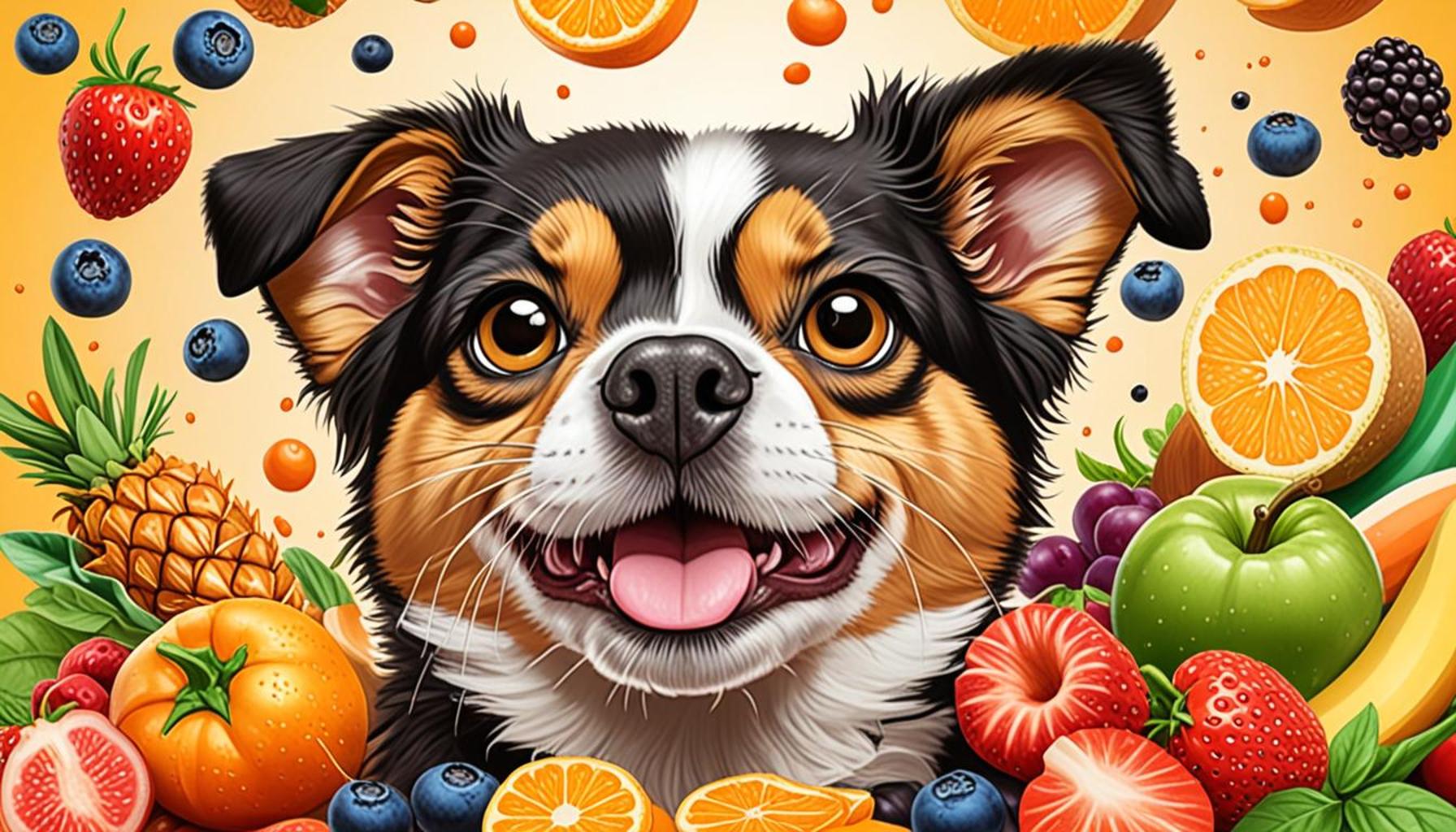The Benefits of Probiotics in the Digestive Health of Dogs and Cats

Understanding the Impact of Probiotics on Pet Digestive Health
The health of our beloved pets is intricately tied to their digestive systems. Much like humans, dogs and cats possess an intricate ecosystem of microorganisms within their intestines, and maintaining a balanced gut microbiome is key to fostering their overall wellness. One effective strategy to achieve this balance is the integration of probiotics into their dietary regimen.
Probiotics are defined as live microorganisms that confer beneficial health effects when consumed in appropriate amounts. These beneficial microbes play a crucial role in supporting the digestive health of our pets. Specifically, they help in several critical functions:
- Enhance gut flora: A diverse microbial community in the gastrointestinal tract is essential for efficient digestion and nutrient absorption. This diversity protects against opportunistic pathogens by competing for space and resources.
- Support immune function: A significant portion of a pet’s immune system is located in the gut. By maintaining a healthy microbiome, probiotics contribute to a stronger immune response, helping pets ward off illnesses.
- Alleviate digestive issues: Probiotics have been shown to alleviate common digestive problems like diarrhea, constipation, and bloating by restoring balance to the gut flora.
So, how do probiotics achieve these benefits? They assist in breaking down complex food particles, enhancing nutrient absorption, and even synthesizing essential vitamins such as B12 and K. By promoting a healthier intestinal environment, pet owners can significantly improve their pets’ quality of life.
The market for probiotic products has grown tremendously, offering pet owners a broad spectrum of options tailored specifically for canines and felines. From probiotic supplements available in powder, capsule, or chewable form to specially formulated pet foods enriched with live active cultures, there are countless choices. A popular choice among pet owners is to opt for high-quality commercial dog and cat foods that contain fermented ingredients or probiotics as staples, allowing for ease of incorporation into regular meals.
Delving deeper into the science, studies have shown that probiotics can also assist in managing food allergies and reducing the severity of gastrointestinal diseases. For instance, pets suffering from inflammatory bowel disease (IBD) may see improvement with specific strains of probiotics, suggesting an exciting area for further research.

Additionally, veterinary professionals are increasingly recommending probiotics as part of preventative health measures, especially after antibiotic treatments, which can disturb the gut flora. Probiotics can help restore balance post-treatment, thereby optimizing digestive health once more. Overall, understanding how these tiny organisms operate not only enhances our knowledge but equips pet owners to make informed dietary choices that significantly benefit their furry companions’ health.
DISCOVER MORE: Click here to learn about the benefits of pets for chronic disease patients</p
Unlocking the Power of Probiotics
As responsible pet owners, understanding the significance of probiotics in our furry friends’ diets is essential for preserving their digestive health. Probiotics not only enhance the balance of beneficial bacteria in the gut but also play a pivotal role in overall health by influencing various bodily functions. So, how do these microorganisms make a difference for our dogs and cats?
One remarkable benefit of probiotics is their ability to improve digestion. In many cases, the food we feed our pets can be challenging for their systems to break down completely. Probiotics aid in the digestion process by producing enzymes that help break down complex carbohydrates and proteins. This enhanced enzymatic activity facilitates better nutrient absorption, allowing pets to reap the most benefits from their food. As a result, pets are not only happier but also more energetic.
Furthermore, probiotics prove invaluable in maintaining a healthy gut environment. A well-balanced microbial community in the gastrointestinal tract helps to prevent the overgrowth of harmful bacteria. When harmful bacteria dominate, pets may face various gastrointestinal issues. Probiotics compete for resources, effectively suppressing harmful bacteria and helping to prevent infections or conditions like diarrhea and gastritis.
Here are some notable ways in which probiotics support the digestive health of dogs and cats:
- Balanced Gut Flora: Probiotic strains promote a diversity of beneficial bacteria, leading to improved digestion and supporting overall gut health.
- Enhanced Nutrient Absorption: Probiotics play an essential role in breaking down food particles, which increases the bioavailability of nutrients for absorption.
- Digestive Upset Relief: Many pets can experience digestive distress due to various reasons, including stress or dietary changes. Probiotics are known to alleviate symptoms such as diarrhea and bloating.
- Immune System Support: As a considerable part of the immune system resides in the gut, a balanced microbiome equipped with probiotics can enhance your pet’s immune responses, keeping them healthy.
In the context of the American veterinary landscape, research surrounding probiotics is expanding rapidly. Studies have suggested promising outcomes for specific strains of probiotics, indicating their potential to aid in managing the symptoms of conditions such as irritable bowel syndrome (IBS) and food intolerances. Moreover, as veterinarians increasingly recognize the importance of gut health, many are now recommending probiotics not only as a treatment option but also as a vital part of preventative care.
With a wealth of choices available, pet owners can select from probiotic supplements or premium pet food containing these beneficial microorganisms. As more people recognize the health benefits of probiotics for their pets, offering these tiny allies into their diets can significantly improve their lives. The path to a healthier, happier pet could simply be a scoop of probiotics away.
The Importance of Probiotics in Pets’ Digestive Health
Probiotics play a vital role in maintaining the digestive health of our furry companions. These beneficial microorganisms are essential for promoting a balanced gut microbiome, which is crucial for various bodily functions, including digestion, absorption of nutrients, and immune support. As we explore the advantages of incorporating probiotics into the diets of dogs and cats, let’s delve into specific benefits that can significantly enhance their overall well-being.One of the most remarkable benefits of probiotics is their ability to alleviate gastrointestinal issues. Conditions such as diarrhea, constipation, and bloating can be unpleasant for pets and their owners alike. Probiotics work by restoring the natural balance of gut bacteria, helping to prevent or treat these issues effectively. Additionally, research has shown that probiotics can reduce the frequency and severity of digestive disorders in pets recovering from antibiotics, which often disrupt the gut flora.Moreover, probiotics can strengthen the immune system. A healthy gut is directly linked to a well-functioning immune response. By fostering a balanced gut microbiome, probiotics contribute to effective nutrient absorption, which is vital for a robust immune system. This means that pets can fend off illnesses more effectively, leading to fewer trips to the veterinarian.Furthermore, probiotics are known to promote better nutrient absorption. This is particularly important as many pets suffer from food sensitivities or allergies that can affect their ability to gain nutrients from their diet properly. By introducing probiotics, pet owners can help ensure that their dogs and cats are getting the maximum benefit from their food, leading to improved health and vitality.Incorporating probiotics into pet diets is becoming increasingly popular, and it’s essential to choose high-quality supplements designed specifically for dogs and cats. Always consult with a veterinarian before introducing any new supplement to ensure it’s appropriate for your pet’s individual needs. As more research unfolds, the understanding of probiotics’ impacts on the digestive health of pets continues to expand, offering hope for improved well-being for our beloved pets.
| Advantage | Description |
|---|---|
| Improved Digestion | Probiotics restore gut flora, alleviating digestive issues like diarrhea and bloating. |
| Stronger Immune System | A healthy gut microbiome supports a more effective immune response, helping pets fight illnesses. |
| Better Nutrient Absorption | Probiotics enhance nutrient uptake, especially crucial for pets with food sensitivities. |
DISCOVER MORE: Click here to find out how pets enhance our well-being!
The Role of Probiotics in Preventative Care
Interestingly, probiotics do not just serve as a remedy; their role in preventative health is becoming increasingly recognized in veterinary medicine. By routinely supplementing your pet’s diet with probiotics, pet owners may help to build a resilient gut environment that can handle adversities such as dietary indiscretions or even the stress of travel. Research indicates that maintaining a robust gut microbiome can lessen the likelihood of gastrointestinal disturbances in pets, fostering overall wellness.
Moreover, in a world filled with processed pet foods that may lack natural enzymes and nutrients, probiotics bridge the gap. Many pet foods, while convenient, can be stripped of essential probiotics during manufacturing. Products that incorporate live probiotics can help replenish these beneficial organisms, ensuring that pets receive the maximum nutritional value from their meals. Additionally, many high-quality commercial pet foods are now formulated with prebiotics and probiotics, synergistically working to promote gut health.
Thinking further about practical applications, reputable brands have begun to offer veterinarian-recommended probiotic formulations that are specific to dog and cat breeds, ages, and health conditions. This tailored approach allows pet owners to customize their pet’s probiotic intake according to their specific needs. For example, puppies and kittens can especially benefit from probiotics, as their developing gut systems are more susceptible to imbalances.
Another critical aspect of probiotics is their potential impact on anxiety and behavior. Emerging research has indicated that a well-balanced gut microbiome can influence mood and stress levels in pets. Since certain strains of probiotics, such as Lactobacillus and Bifidobacterium, have been shown to impact the gut-brain axis, pet owners might find an added benefit in reducing anxiety-related digestive issues, such as upset stomachs during thunderstorms or long trips.
- Holistic Approach: Incorporating probiotics is part of a broader strategy that emphasizes not just treating digestive issues but also enhancing quality of life, reflecting a holistic view of pet care.
- Age-Specific Benefits: Both geriatric pets and those in their prime can see tailored benefits. For senior pets, probiotics can boost immunity and mitigate age-related digestive woes.
- Condition-Specific Formulations: Veterinarians often recommend specific probiotic strains for pets suffering from conditions like allergies or skin irritations, thus illuminating the multifaceted nature of gut health.
To delve deeper into this topic, pet owners are encouraged to monitor their pets’ responses to probiotics. Observing changes in behavior, energy levels, and the consistency of waste can offer valuable insights into the efficacy of probiotic supplementation. Furthermore, it is essential to consult with a veterinarian when considering introducing any new supplement into their diet, especially if the pet is already on medication or has a pre-existing condition.
In addition to dietary supplements, natural sources of probiotics such as fermented foods (like plain yogurt for dogs or fermented vegetables) can aid in promoting digestive health. However, it is crucial to introduce these foods cautiously and in moderation to avoid digestive upset.
Ultimately, the journey of understanding the benefits of probiotics in the digestive health of dogs and cats is a rich avenue of exploration that benefits both pets and owners alike. As ongoing studies emerge, we can expect to learn even more about these tiny but powerful organisms, and their impressive potential to enhance the lives of our furry companions.
DISCOVER: Click here to learn more
Conclusion: The Power of Probiotics for Our Pets
In conclusion, the benefits of probiotics in enhancing the digestive health of dogs and cats cannot be overstated. Through their role in reinforcing gut health, these beneficial microorganisms offer a multifaceted approach to maintaining overall wellness. From preventing gastrointestinal disturbances to alleviating anxiety-related digestive issues, the advantages of integrating probiotics into a pet’s diet extend beyond simple digestive support.
By fostering a resilient microbiome, probiotics empower our furry companions to better withstand common health adversities, thereby enriching their quality of life. Additionally, tailored probiotic formulations that accommodate specific breeds and life stages are redefining preventative care, ensuring that individual health needs are met.
As pet owners become increasingly aware of the importance of gut health, the value of probiotics as a preventive measure is gaining traction within the veterinary community. By carefully monitoring our pets’ reactions to these supplements and consulting with veterinarians, we can make informed decisions that promote a balanced and healthy gut environment. Through this process, we can bridge the gap between modern pet food manufacturing and our pets’ innate dietary needs.
As research continues to evolve, we can expect to uncover new insights into the profound impact probiotics have on the complex interplay between gut health and overall wellbeing. Therefore, adopting probiotics within your pet’s dietary regime is not only a wise choice, but also a vital step toward nurturing a happier and healthier life for your beloved dogs and cats.



